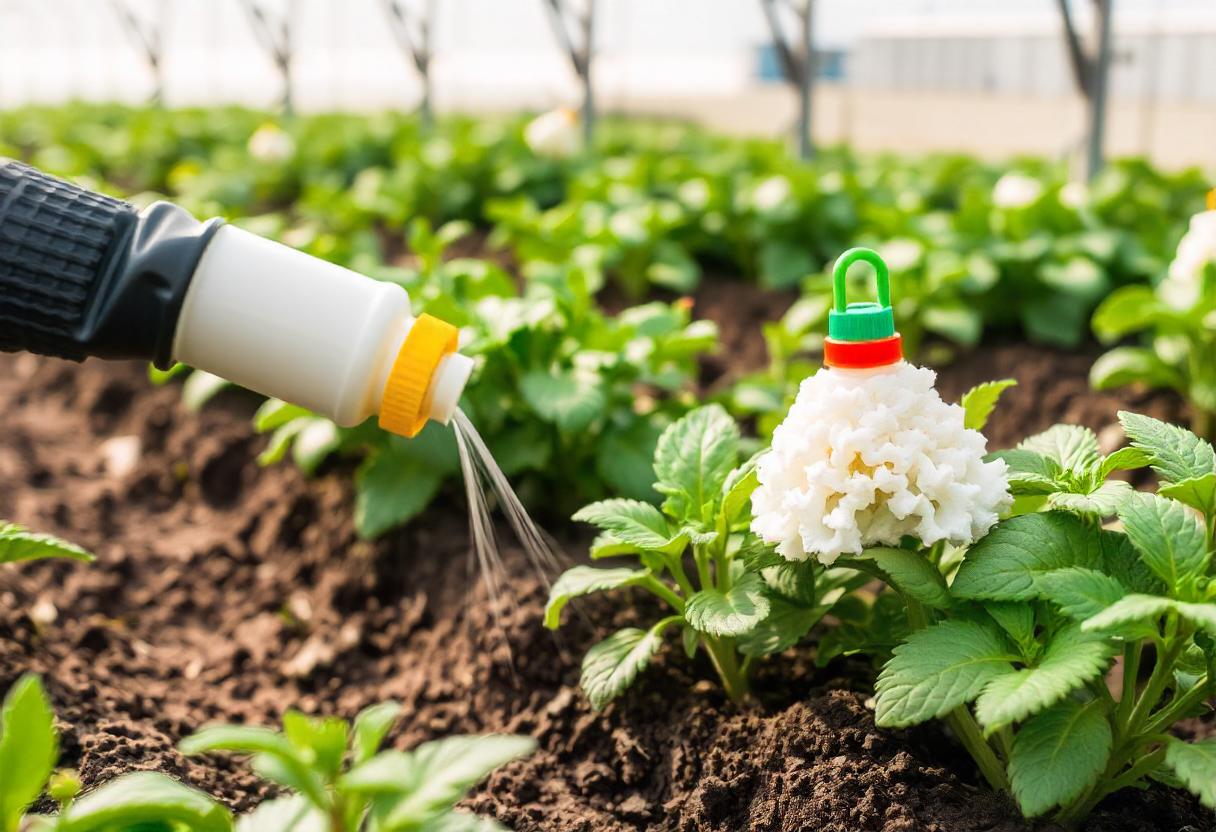
Agrochemicals play a crucial role in modern agriculture by improving crop yields, controlling pests, and enhancing soil fertility. However, their widespread use raises concerns regarding environmental and human safety, as well as the need to explore sustainable alternatives. This article delves into the safety measures surrounding agrochemicals, their use in farming, and viable alternatives.
Safety of Agrochemicals
Agrochemicals, including pesticides, herbicides, and fertilizers, can pose risks to human health and the environment when not used properly. Exposure to these chemicals can lead to acute and chronic health issues, such as skin irritations, respiratory problems, and even long-term diseases like cancer. For farmers and agricultural workers, the risk of direct exposure is particularly high, making safety precautions essential.
To mitigate these risks, strict regulations govern the production, distribution, and use of agrochemicals. Farmers are required to adhere to specific safety guidelines, such as wearing protective gear, following correct application procedures, and ensuring safe storage. Additionally, agrochemical manufacturers are mandated to conduct rigorous testing before their products can enter the market, ensuring that the chemicals are safe when used according to label instructions.
Use of Agrochemicals in Modern Agriculture
The use of agrochemicals has significantly transformed agriculture, allowing farmers to enhance crop yields and improve food security. Pesticides, for instance, are used to control insects, weeds, and diseases that could otherwise devastate crops. Fertilizers provide essential nutrients to plants, ensuring robust growth and high productivity.
However, over-reliance on agrochemicals can lead to negative consequences. Pesticide resistance is a growing problem, where pests evolve and become less susceptible to the chemicals used against them. Additionally, the overuse of fertilizers can result in soil degradation, water pollution, and the loss of biodiversity, as non-target species may be affected by chemical runoff.
Environmental Impact of Agrochemicals
Agrochemicals can have far-reaching environmental consequences. When chemicals are applied to crops, they may not stay confined to the target area. Pesticide drift, where chemicals are carried by wind or water to other areas, can affect non-target plants and animals, including beneficial insects like bees.
Water contamination is another serious concern. Chemical runoff from fields can enter nearby water bodies, leading to nutrient pollution and the phenomenon of eutrophication. This process depletes oxygen levels in water, causing dead zones that are uninhabitable for aquatic life.
To reduce the environmental impact, integrated pest management (IPM) techniques are being promoted. IPM focuses on using agrochemicals as a last resort, relying instead on natural pest control methods, crop rotation, and the use of resistant crop varieties.
Alternatives to Agrochemicals
Given the risks associated with agrochemical use, there is increasing interest in exploring sustainable alternatives. One approach is the adoption of organic farming practices, which avoid synthetic chemicals and rely on natural fertilizers, biological pest control, and organic matter to maintain soil health.
Biopesticides are another promising alternative. Derived from natural materials such as plants, bacteria, and certain minerals, biopesticides offer a more environmentally friendly solution for pest control. They tend to degrade more quickly and have lower toxicity levels compared to conventional pesticides.
Agroecology, an approach that integrates agricultural practices with ecological principles, also offers solutions for reducing dependence on agrochemicals. By enhancing biodiversity, improving soil fertility through natural processes, and encouraging sustainable farming methods, agroecology aims to create resilient agricultural systems that are less reliant on chemical inputs.
Regulations and Policies Surrounding Agrochemical Use
Governments and international organizations have established various regulations to ensure the safe use of agrochemicals. In many countries, agrochemicals must undergo rigorous testing for toxicity, environmental impact, and efficacy before being approved for use. Furthermore, regulatory agencies like the U.S. Environmental Protection Agency (EPA) and the European Chemicals Agency (ECHA) monitor the sale and distribution of these products to ensure compliance with safety standards.
Agricultural policies are increasingly promoting the use of sustainable practices, with subsidies and incentives being offered to farmers who adopt eco-friendly alternatives. Programs that promote organic farming, reduce pesticide use, and encourage crop diversification are becoming more widespread as part of global efforts to achieve sustainable agriculture.
Public Awareness and Education on Agrochemical Safety
Educating farmers and the general public about the safe use of agrochemicals is essential in minimizing the associated risks. Many organizations offer training programs on proper handling, application techniques, and disposal of agrochemicals. Farmers are encouraged to adopt best practices, such as using protective equipment, monitoring weather conditions to prevent chemical drift, and following correct dosages as indicated on product labels.
Public awareness campaigns also play a role in informing consumers about the environmental and health implications of agrochemical use. As consumers become more conscious of the impact of their food choices, demand for organically grown produce and sustainable farming methods continues to rise.